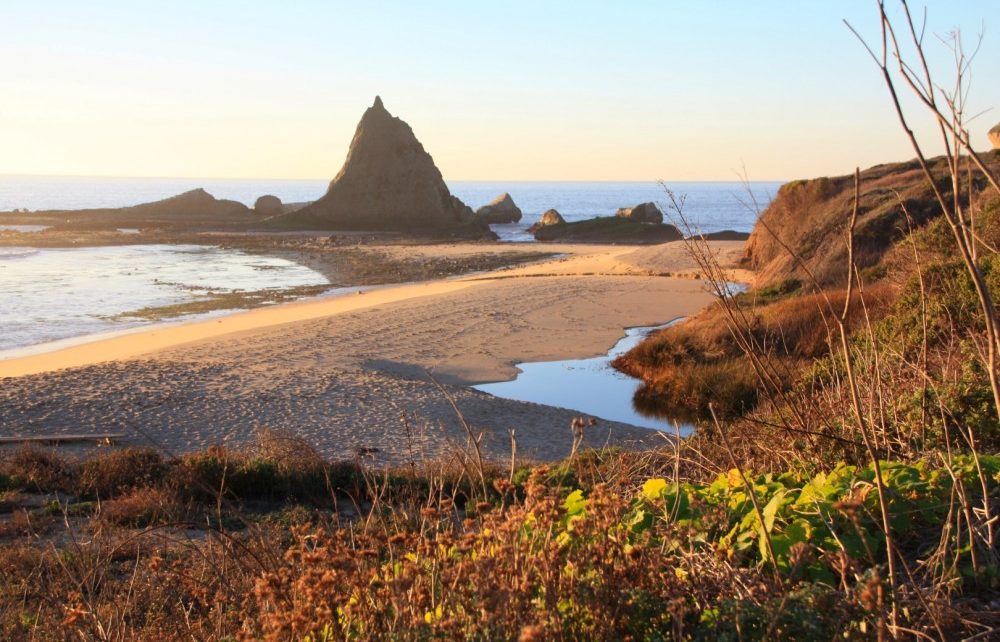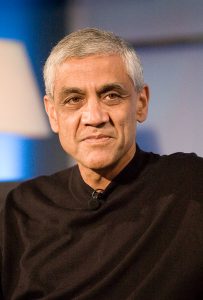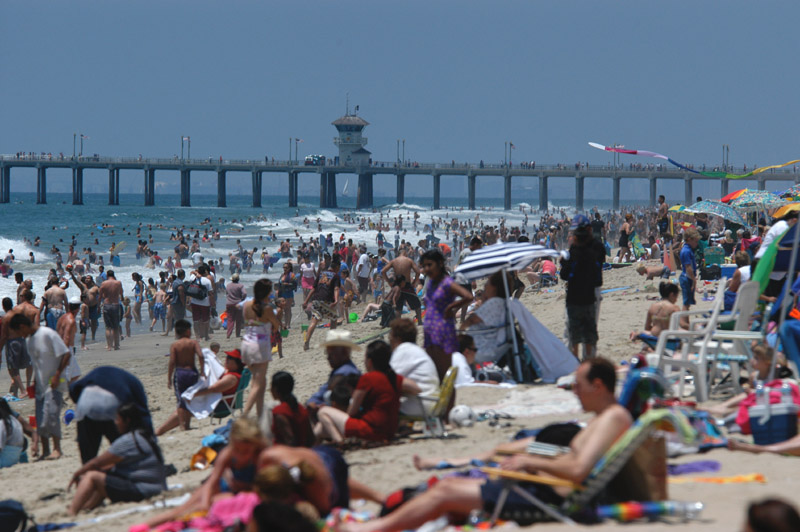
Martins Beach (californiabeaches)
State of California Joins Decade Long Battle Over San Mateo County Beach
California sides with citizens and public land rights over Silicon Valley billionaire
By Evan Symon, January 6, 2020 5:17 pm
For over a decade Sun Microsystems founder Vinod Khosla has been involved in a dispute over a road to a beach that has made international headlines.
The fight over Martins Beach

At the center of the conflict is Martins Beach, a beach in Lobitos, a town in San Mateo County south of Half Moon Bay. For generations, the only non-ocean route to get to the beach has been a small road locked by a gate. Previous owners had charged for road access and parking, which many swimmers, hikers, and surfers paid.
But in 2008 Vinod Khosla bought the property leading up to the beach for $32.5 million and summarily closed the road. People crossing the land since have been harassed, and in some cases, arrested. Court cases since have rulings in favor of Khosla, and in favor of citizens back and forth.
This week, the State of California decided to get involved. The California Coastal Commission and State Lands Commission is now suing Khosla over “improperly and illegally” restricting access for citizens to get to Martins Beach.
“The California Coastal Act is very clear on this,” noted lawyer Veronica Duncan. “All beaches are public land. Many previous rulings have noted this.
But the issue then becomes public vs. private land. If there is only one way to get to public land, and that’s through private land, do you allow it? A court ruled last year that it was a no because “as strong as the coastal access policies of our state are, we do not understand them to empower us” in regards to ruling against [Khosla].”
Property rights and citizen rights
Khosla isn’t giving up on his property rights easily. In 2018, Khosla went so far as to bring the case to the U.S. Supreme Court, where they refused to hear the case. He has said repeatedly that allowing people to cross would infringe on his property rights, and that closing the road should be his decision alone.
This state’s involvement this week against Khosla has brought a level of escalation rarely seen in property right cases.
“For the most part these are local cases, especially when eminent domain gets factored,” continued Duncan. “But this suit involves state land, [Khosla] could be worried about pollution, or someone getting injured on his property, but he’s blocking the state. They usually don’t take too kindly on that.”
“The suit even says the public has gone to the beach for a century now and that the road is under implied dedication. Basically that means the public has used it for such a long time in the name of a public benefit that it became implied public use. You can’t stop people from enjoying something on public land if the way to get there had been unimpeded for so long.”
Implied dedication and permitted use
The lawsuit itself says as much.
“The public’s extensive and continuous use of Martin’s Beach (via the access road) as a public beach, without any interruption at least since the 1920s and for about a century, establishes that the public has rights to access and use Martin’s Beach under the doctrine of implied dedication,” states the lawsuit by the State Lands Commission.
While the state of California has sided with residents, Khosla has found an unusual ally in environmental groups. The groups wish to preserve the adjoining land as well as protect the beach. It was with their help that Khosla had won a previous ruling last year in which it was found that previous owners had charged for cars to park, implying permitted use, not implied dedication.
Precedent at stake
Despite this, the current lawsuit states that the road should be open without a gate and that all ‘no trespassing’ signs should be taken down. If California wins it could also set precedent for all future cases.
“The big reason it’s getting so much attention right now is because it’s seen as a ‘big, rich guy not allowing the poorer, everyday people from crossing his land,” said Duncan. “[Khosla] is seen as this rich guy who wants to make that beach into his own private beach. It’s not that simple, but still, that’s how it’s shown.”
“The real thing here is precedent. If California wins this, that means any other beach or piece of public land that’s block off by private land could make it legal to cross that private land to get there. That’s not just rich billionaires. That could mean ranchers needing to create gates. That could mean breaking down fences of people who live near the ocean. Anywhere you see a ‘no trespassing’ sign by the beach may not be legal unless it’s a federal warning.”
“Or if [Khosla] wins with no appeals. That’s huge. That means landowners can block the public from land they rightfully can be at. And that can cause a host of problems, including charging huge fees to get there.”
“It’s not an easy case, and it’s one where both sides have legitimate pros and cons. That’s why a lot of eyes are on this.”
The lawsuit by the state has been filed with court dates expected in the near future.
- Bill to Require Law Enforcement Disclosure if AI Was Used To Help Write Reports - August 7, 2025
- Gov. Newsom Files FOIA Request To ‘Expose True Cost’ Of L.A. Federal Troop Deployment for Anti-ICE Riots - August 6, 2025
- California Redistricting: How Newsom’s Plan Will Demolish Hard Fought GOP Gains - August 6, 2025



